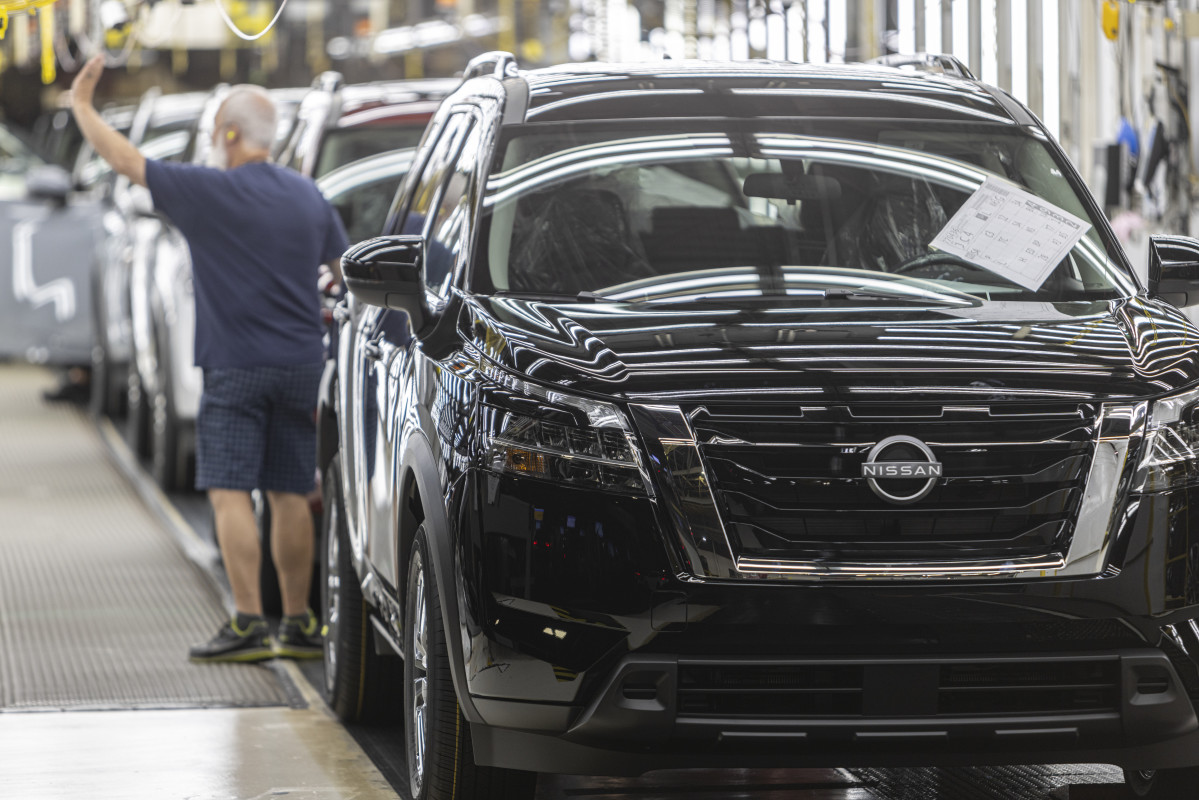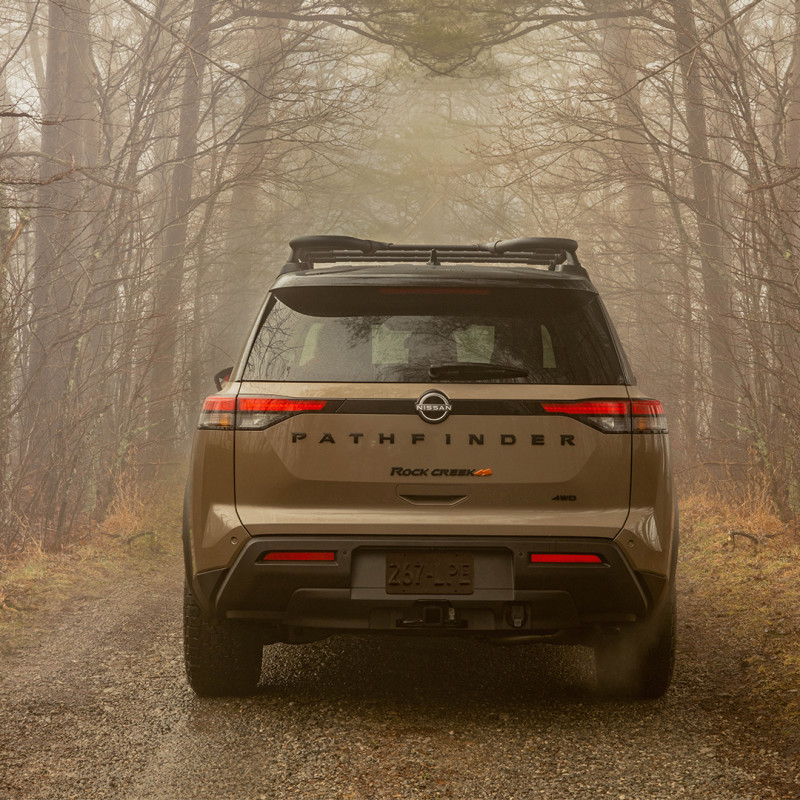The Japanese automaker is keeping prices steady to help U.S. dealers and buyers
In a recent announcement to its U.S. dealers, Japanese automaker Nissan stated that it won’t increase the price of its imported vehicles until at least June 2. This situation comes as it analyzes its U.S. manufacturing resources to help adapt to the current tariff situation as much as possible.
In a note dated April 15 to its U.S. retailers, Nissan U.S. sales head Vinay Shahani said that the automaker has nearly a three-month supply of tariff-free vehicles and is “war-gaming” for the eventual situation when said three-month supply gets depleted.

Nissan
Shahani’s message comes as President Trump’s 25% tariff on all foreign autos and imported auto parts looms over concerned buyers, dealers, and automakers. The tariff, which President Donald Trump slapped on imported vehicles on April 3, remains in place even after Trump paused most of the additional “reciprocal” duties he had imposed on nearly every U.S. trading partner.
“While we know these new vehicle tariffs will have an impact on affordability for car buyers over a long period of time, we will try to minimize that impact on Nissan buyers,” Nissan U.S. sales head Vinay Shahani told retailers in an April 15 memo. In addition, Shahani noted that the automaker is also “evaluating how to quickly leverage more of our available [U.S] capacity […] in the year ahead,” and to “stay tuned.”

Nissan
Nissan plans to push massive U.S. manufacturing to combat tariff exposure.
To help minimize its exposure to the Trump administration’s trade policies, Nissan officials plan to increase the supply of four of its best-selling vehicles dramatically. In 2024, the Rogue crossover, Pathfinder SUV, the larger Murano crossover SUV, and the Frontier pickup truck together accounted for 48 percent of Nissan’s U.S. sales.
However, at the same time, Nissan says that the Smyrna, Tennessee, and Canton, Mississippi assembly plants, where these vehicles are made, were only running at about half of their capacity in 2024. Shahani sees that increasing their output would help Nissan find a “path through [the tariff] storm.”
In a reversal of prior policies, Nissan will keep the factory open later to accommodate a second shift on the Rogue assembly line in Smyrna this summer. In an April 16 statement to AutoNews, Nissan Americas Chairperson Christian Meunier said that Rogue production will increase by 54 percent, or 60,000 vehicles, over the next year.
Nissan’s memo to dealers comes not long after other automakers have begun trying to add their own version of pricing protections to their vehicles. Earlier this month, Hyundai and its luxury brand Genesis started a program dubbed the ‘Customer Assurance’ and ‘Genesis Cares’ programs, where Hyundai and Genesis are set to maintain the manufacturer’s suggested retail price for the entire lineup of both brands until June.
Detroit mainstay Ford recently started offering its employee pricing plan, known as the A Plan, where discounts ranging from $2,000 to $10,000 can be applied towards select 2024 and 2025 models through June 2.

Nissan
Final thoughts
Although Trump’s pause on the reciprocal tariffs has slowed public fear, the automotive industry remains a sitting duck. According to a new forecast from the Detroit-area automotive advisory firm Telemetry, if the current tariff situation — 25% import levies on imported cars and parts —were to stay in effect, it could lead to 1.8 million fewer annual car sales this year. They also found that if the tariffs remained in effect until 2035, annual car sales in the U.S. and Canada would fall by seven million units.
Whether trade deals between countries can be made, or if the auto industry flexes its lobbying power, in the end, these small victories are still a temporary band-aid on a bigger problem that can only be permanently solved through the reversal of the said tariffs.